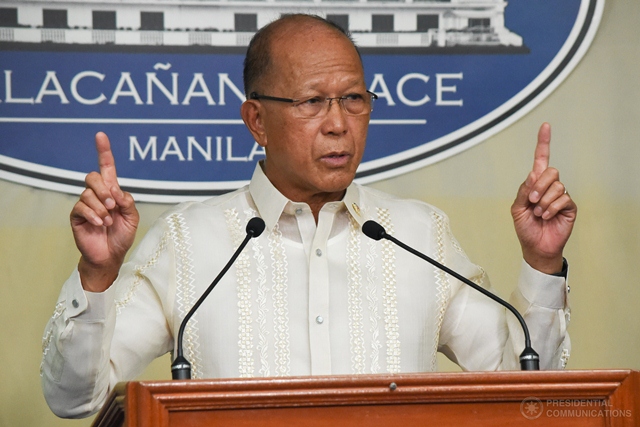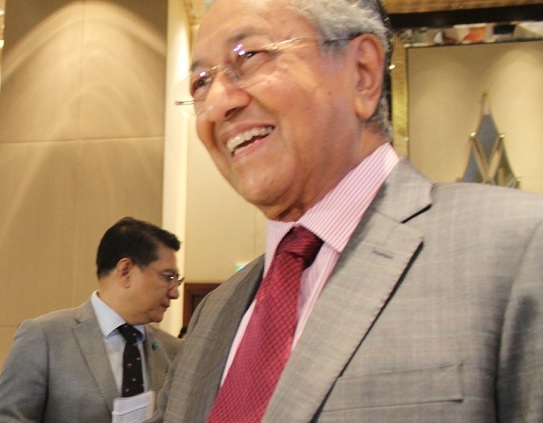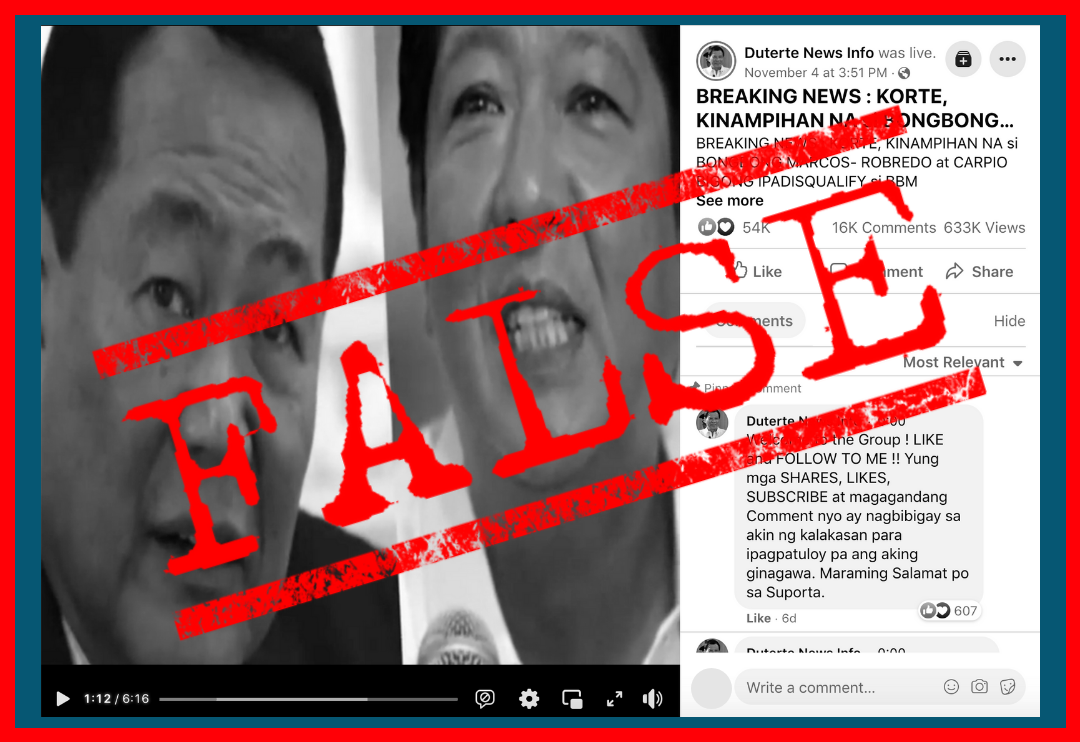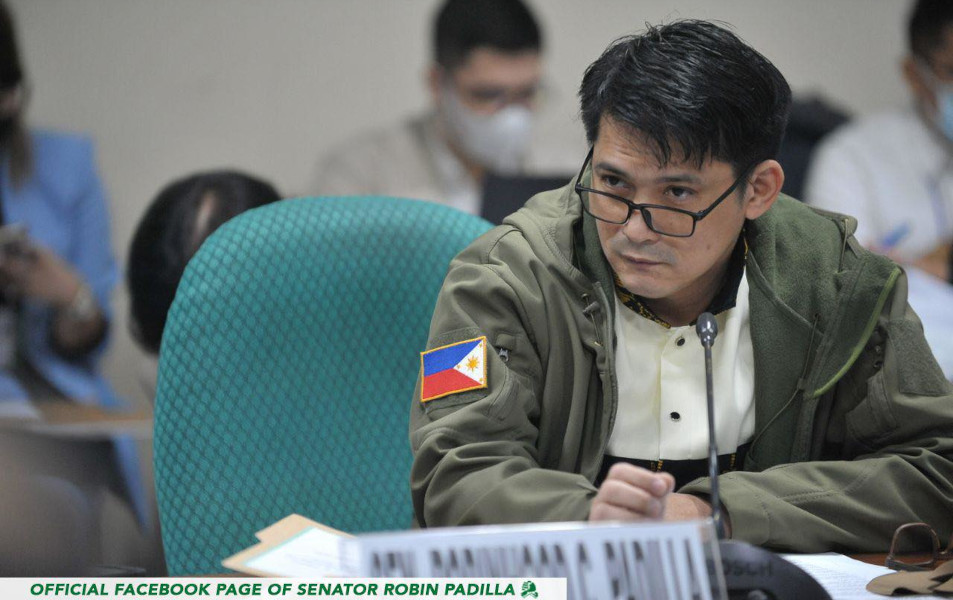Of the four members of the Supreme Court who dissented from the majority decision upholding President Duterte’sdeclaration of Martial Law and suspension of the privilege of the writ of habeas corpus in the whole of Mindanao, three ( Chief Justice Maria Lourdes Sereno, Senior Associate Justice Antonio T. Carpio, and Associate Justice Alfredo Benjamin S. Caguioa) supported him as far as Marawi City was concerned.
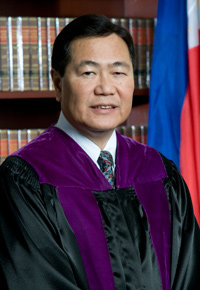
Senior Associate Justice Antonio T. Carpio
In his dissenting opinion, Carpio said, “Without question, the widespread killing of both government forces and innocent civilians, coupled with the destruction of government and private facilities, thereby depriving the whole population in Marawi City of basic necessities and services, endangered the public safety in the whole of Marawi City. Hence, with the concurrence of an actual rebellion and requirement of public safety, the President lawfully exercised his Commander-in-Chief powers to declare martial law and suspend the privilege of the writ in Marawi City.
“However, the same does not apply to the rest of Mindanao. Proclamation No. 216 and the President’s Report to Congress do not contain any evidence whatsoever of actual rebellion outside of Marawi.
“In fact, the Proclamation itself states that the Maute-Hapilon armed fighters in Marawi City intended to remove “this part of Mindanao,” referring to Marawi City, from Philippine sovereignty. The Proclamation itself admits that only ‘this part of Mindanao’ is the subject of separation from Philippine sovereignty by the rebels. The President’s Report did not mention any other city, province or territory in Mindanao, other than Marawi City, that had a similar public uprising by a rebel group, an element of actual rebellion. Thus, the President’s Report concludes that ‘based on various verified intelligence reports from the AFP and the PNP, there exists a strategic mass action of lawless armed groups in Marawi City.’ The President’s Report expressly states that the Maute-Hapilon armed fighters were waging rebellion first in Marawi City as a prelude or “precedent” to waging rebellion in the rest of Mindanao. This is a clear admission that the rebellion was only in Marawi City and had yet to spread to the rest of Mindanao. “
President Duterte cited the capability of the Maute-Hapilon group and other rebel groups to sow terror also in other parts of Mindanao as a justification for Martial Law in the whole Mindanao.
“This clearly violates the 1987 Constitution, “ Carpio said adding “Capability to rebel, absent an actual rebellion or invasion, is not a ground to declare martial law or suspend the privilege of the writ under the 1987 Constitution.”
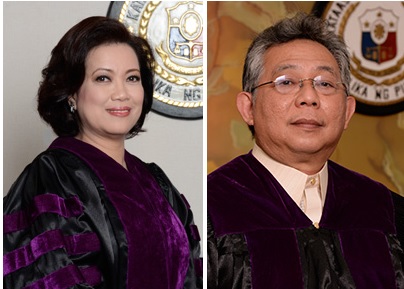
Chief Justice Lourdes Sereno nd Associate Justice Alfredo Benjamin S. Caguioa
Sereno and Caguioa slightly differed with Carpio as they upheld martial Law to cover the whole of Lanao del Sur (where Marawi City is) Maguindanao, and Sulu.
Only Associate Justice Marvic Leonen dissented all the way.
Leonen concluded his 92-page dissenting opinion saying: “With due respect to my colleagues, I cannot join them in their acceptance of the President’s categorization of the events in Marawi as equivalent to the rebellion mentioned in Article VII, Section 18. In conscience, I do not see the situation as providing for the kind of necessity for the imposition of martial law in Marawi, as well as throughout the entire Mindanao.
“Rather, I read the situation as amounting to acts of terrorism, which should be addressed in a decisive but more precise manner. The military can quell the violence. It can disrupt many of the planned atrocities that may yet to come. It can do so as it had on many occasions in the past with the current legal arsenal that it has.
In my view, respondents have failed to show what additional legal powers will be added by martial law except perhaps to potentially put on the shoulders of the Armed Forces of the Philippines the responsibilities and burdens of the entire civilian government over the entire Mindanao region. I know the Armed Forces of the Philippines to be more professional than this narrative.
“ I honor the sacrifices of many by calling our enemy with their proper names: terrorists capable of committing atrocious acts. They are not rebels desirous of a viable political alternative that can be accepted by any of our societies. With their plans disrupted and with their bankrupt fanaticism for a nihilist apocalypse, they are reduced to a fighting force violently trying to escape.
“They are not a rebel group that can hope to achieve and hold any ground. As terrorists, they should be rooted out through the partnership produced by the eyes and ears of our communities and the swift decisive hand of our coercive forces.
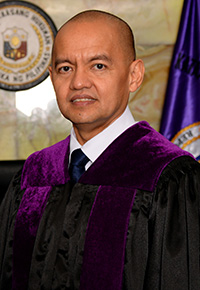
Associate Justice Marvic Leonen
“They cannot be found and kept in check by a false sense of security created by the narrative of martial law.
“ History teaches us that to rely on the iron fist of an authoritarian backed up by the police and the military to solve our deep-seated social problems that spawn terrorism is fallacy. The ghost of Marcos’ Martial Law lives within the words of our Constitution and rightly so. That ghost must be exorcised with passion by this Court whenever its resemblance reappears.
Never again should this court allow itself to step aside when the powerful invoke vague powers that feed on fear but could potentially undermine our most cherished rights. Never again should we fall victim to a false narrative that a vague declaration of martial law is good for us no matter the circumstances. We should have the courage to never again clothe / authoritarianism in any disguise with the mantle of constitutionality. …
“We should temper our fears with reason. Otherwise, we succumb to the effects of the weapons of terror. We should dissent -even resist -when offered the farce that martial law is necessary because it is ‘only an exclamation point.’”
